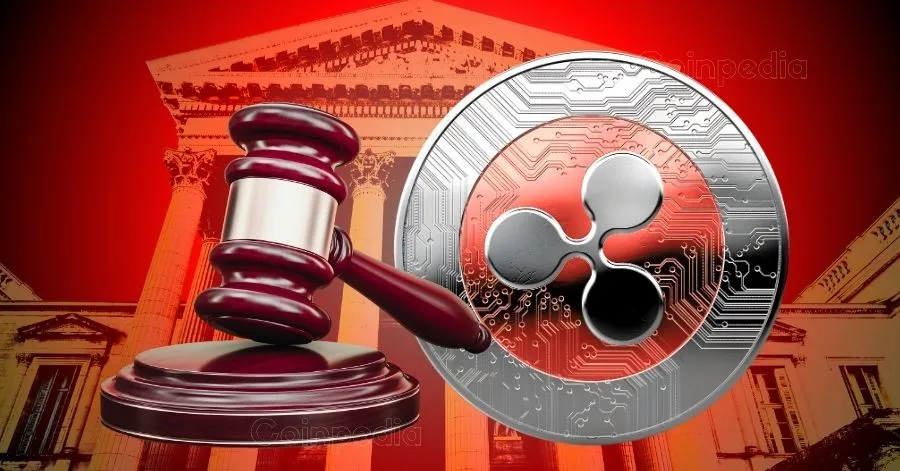The conclusion of the Ripple vs. U.S. Securities and Exchange Commission (SEC) lawsuit marks a pivotal moment in the cryptocurrency regulatory landscape. After a lengthy legal battle spanning over four years, Ripple Labs has decided to drop its cross-appeal against the SEC, and the SEC is expected to reciprocate by dismissing its own appeal. This development brings closure to one of the most closely watched crypto regulatory conflicts, influencing not only XRP’s future but the broader regulatory environment surrounding digital assets.
Background and Context of the Ripple-SEC Lawsuit
The lawsuit was originally filed by the SEC against Ripple Labs for allegedly conducting an unregistered securities offering through the sale of its XRP tokens. The central issue was whether XRP should be classified as a security under U.S. law, a classification that carries strict compliance obligations. Ripple contested this, arguing that XRP functions as a currency or digital asset, not a security, particularly emphasizing its widespread use in international payments and liquidity solutions.
Over the years, the case has seen multiple twists, including partial court rulings that favored Ripple by clarifying that certain XRP sales did not constitute securities sales, and injunctions that imposed penalties. The dispute has significantly impacted XRP’s market performance and regulatory clarity for crypto assets in the U.S.
Ripple’s Strategic Shift: Dropping the Cross-Appeal
The decision by Ripple to drop its cross-appeal signals a strategic pivot aimed at bringing the dispute to an amicable resolution. CFO and CEO Brad Garlinghouse confirmed this move, which suggests that Ripple is choosing to rebuild and refocus its efforts beyond legal uncertainty.
The cross-appeal was originally Ripple’s counter to the SEC’s appeal against earlier favorable court decisions. By withdrawing it, Ripple effectively accepts the current legal status quo but also positions itself to end the costly and distracting litigation.
SEC’s Anticipated Dismissal of Its Appeal and Settlement Terms
The SEC’s expected decision to drop its appeal aligns with signals from internal SEC communications and legal experts who suggest a regulatory recalibration towards practical crypto oversight. This withdrawal points to the SEC’s willingness to settle and move forward, likely because prolonged litigation risks unfavorable precedents or public backlash.
A key component of the settlement includes Ripple paying a $125 million fine, a substantial but reduced penalty compared to potential damages. Importantly, Ripple has reportedly already paid $50 million upfront, and the court is set to return $75 million of that fine to Ripple, indicating a softer financial blow than initially anticipated.
Impact on XRP and the Cryptocurrency Ecosystem
The termination of legal uncertainty promises an immediate positive effect on XRP’s market valuation. Past price suppressions tied to the litigation are anticipated to reverse as investors gain confidence in the token’s regulatory legitimacy. The broad lifting of restrictions on XRP’s sales, especially in exchange sales, enhances its liquidity and use case expansion.
More broadly, the resolution encourages clarity for other crypto projects navigating compliance risks. It suggests a subtle shift in U.S. regulatory bodies’ engagement with digital assets—from an adversarial approach to a more negotiated and pragmatic framework.
Implications for Future Crypto Regulation in the U.S.
The Ripple case has served as a bellwether for cryptocurrency regulation, highlighting ambiguities in securities law application to digital tokens. The legal battle’s conclusion coincides with increasing calls for clearer, more tailored regulatory policies that can accommodate the unique nature of cryptocurrencies and blockchain technology.
Regulatory focus is expected to shift toward cooperative oversight and framework development. The SEC’s readiness to settle could foreshadow future guidelines that provide more predictable outcomes for crypto firms, potentially encouraging innovation and investment while safeguarding investor protection.
Lessons from Ripple vs. SEC for Industry Stakeholders
Conclusion: A New Chapter for XRP and Crypto Regulation
The closure of the Ripple-SEC lawsuit with Ripple dropping its cross-appeal and the SEC poised to dismiss its appeal is a milestone event in crypto regulation. It not only restores investor confidence in XRP but also signals a possible regulatory thaw in the United States. This end to a high-profile battle may catalyze a more balanced regulatory environment where innovation and compliance coexist, fostering broader crypto adoption.
Ripple’s experience imparts valuable strategic insights for the crypto industry: the cost of enduring legal struggles is immense, and seeking resolution through negotiation can pave the way for sustainable growth. As the dust settles, the crypto community will be watching closely how U.S. regulators redefine their oversight roles and how this pivotal case influences future policies designed to govern the complex, rapidly evolving digital asset domain.





